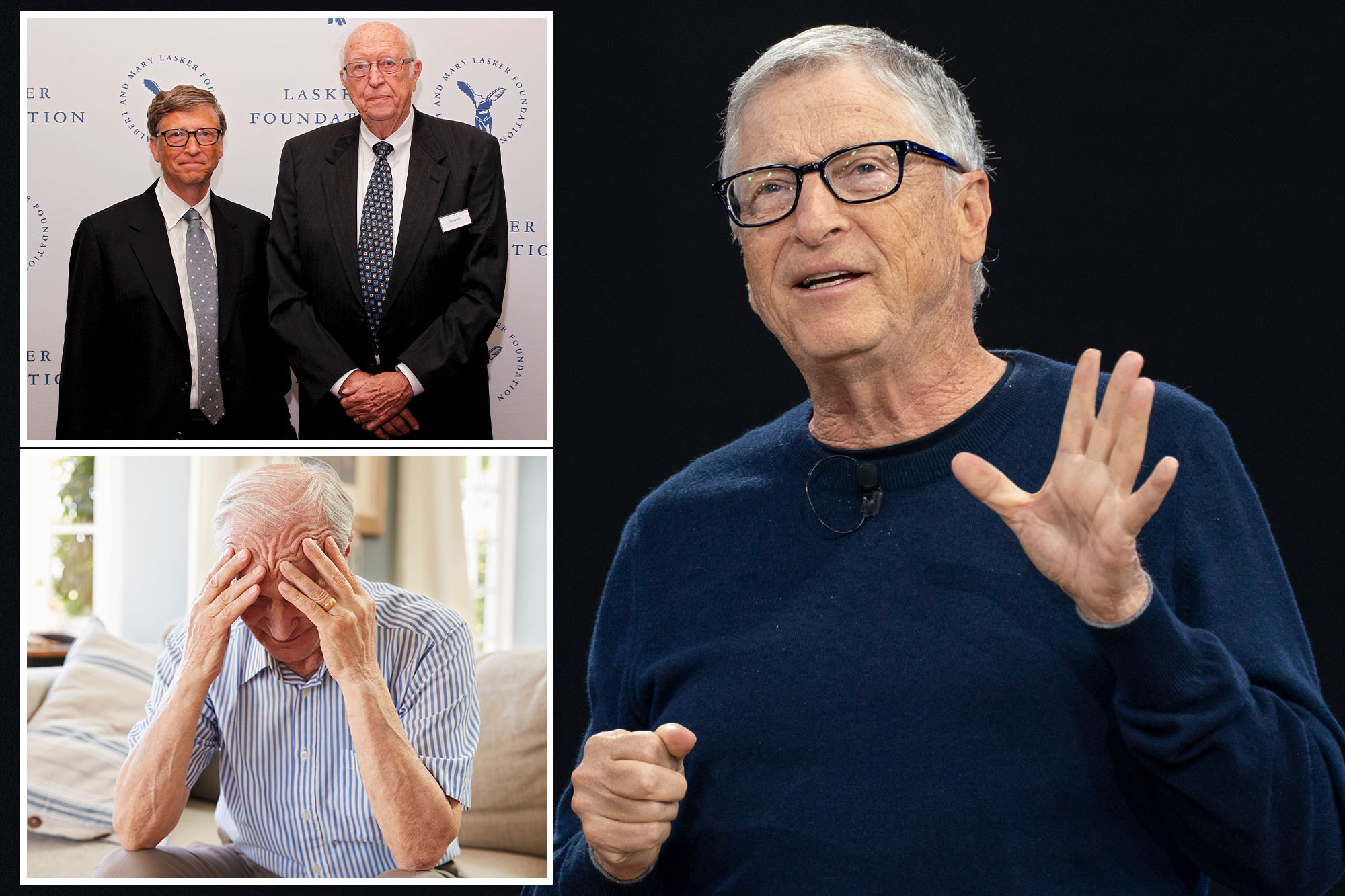Bill Gates is talking about his personal experience with Alzheimer’s, and his hope of progress in the fight against illness.
In a rehearsal published this week on his blog at Gatesnotes.com, the co -founder of Microsoft and 69 -year -old technology billionaire, he reflected on the difficulty of spending another father’s day without his father, Bill Gates Sr.
Major cats died by 2020 at the age of 94 after fighting Alzheimer’s.
“It was a brutal experience, seeing my brilliant and loving father going down and disappeared,” Gates wrote in the blog publication.
Today, motivated by his own experience with common dementia, Gates, which serves as President of the Gates Foundation, is committed to working for a cure for common dementia, which currently affects more than seven million Americans or one in nine people over 65.
In his blog, Gates expressed optimism about “mass progress” in the fight against Alzheimer’s and other dementias.
Last year, Gates said he visited the Indiana School of Medicine in Indianapolis to resort to laboratories where teams have been researching Alzheimer’s biomarkers.
“I also had the opportunity to look under the hood of new automated machines that will soon diagnose worldwide,” he wrote. “It’s an exciting time in a difficult space.”
One of the greatest advances in Alzheimer’s research, according to Gates, is the blood -based diagnostic tests, which detect the proportion of amyloid plates in the brain. (Amyloid plates, protein groups accumulating in the brain are one of the alzheimer’s badges.)
“I am optimistic that these tests are a change of game,” Gates wrote.
Last month, the Food and Drug Administration of the United States (FDA) approved the first blood -based test for 55 -year -old patients, according to Fox News Digital at that time.
Gates traditionally, the main road to the diagnosis of Alzheimer’s was a PET exploration (medical image) or the spinal tap (lumbar puncture), which were usually performed only when symptoms appeared.
The hope is that blood -based tests can do better work to catch the disease, the decline begins.
“We now know that the disease starts from 15 to 20 years before beginning to see signs,” Gates wrote.
“A simple, accurate and easy -to -do blood test can make routine screening possible, identifying patients long before they experience a cognitive decline,” he said.
Gates said he is often asked, “What is the point to diagnose if I can’t do anything about it?”
To this end, he expressed his optimism for the future of Alzheimer’s treatments, saying that two drugs (Lecaneb (Leqembi) and Donanemab (Kisunla)) had obtained the approval of the FDA.
“Both have been modestly shown to slow down the progression of the disease, but what I am very excited about is their potential when combined with early diagnosis,” Gates said.
He also said that blood tests will help accelerate the process of registering patients in clinical trials for new Alzheimer’s medicines.
To achieve it, Gates calls for greater funding for research, which often comes from federal subsidies.
“This is the time to spend more money on the research, no less,” he wrote, also saying that “the search for Alzheimer’s to stop the Alzheimer’s.”
“There is still a lot of work to be done, such as deepening the understanding of the disease pathology and developing an even better diagnosis,” Gates continued.
Gates said that when his father had Alzheimer’s, he considered himself a “death sentence”, but that begins to change.
“They let me go for the amount we learned about Alzheimer’s for the last two years,” he wrote.
“I can’t help but be filled with a sense of hope when I think of all the advances made in Alzheimer’s, even with so many challenges that occur worldwide. We are closer than ever to a world where no one has to see someone who loves suffering from this terrible illness.”
#Bill #Gates #shares #phase #Alzheimers #struggle #talking #fathers #personal #battle
Image Source : nypost.com
